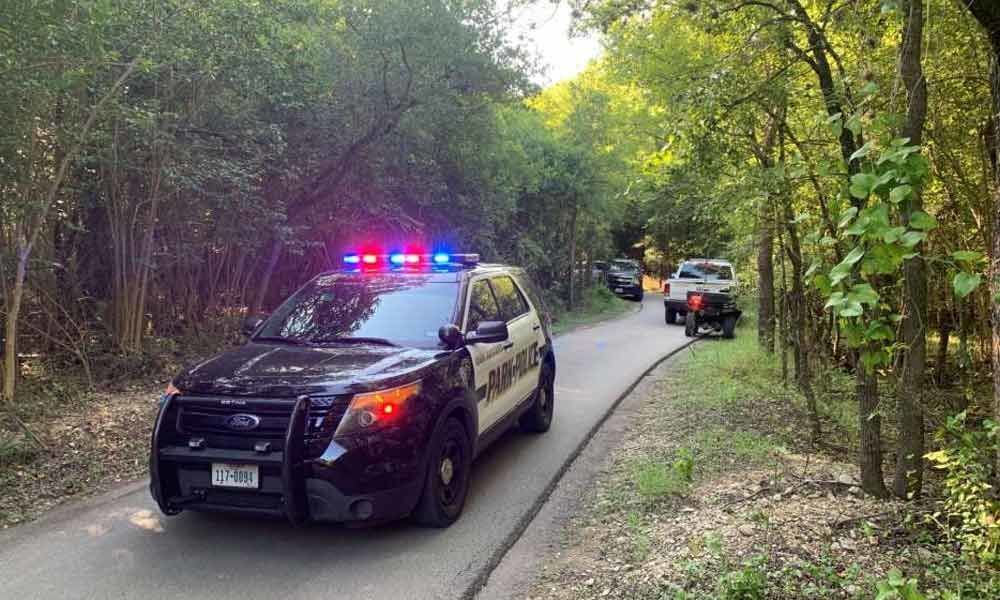Live
- Nizamabad MP Dharmapuri Arvind and Jagtial MLA Dr. Sanjay Kumar Meet CM Revanth Reddy
- Hyderabad CP CV Anand Issues Stern Warning to Bouncers
- MP Laxman Criticizes Police Conduct, Calls for Support for Victims' Families
- Fire Breaks Out in Kachiguda-Chennai Egmore Express, Passengers Evacuated Safely
- CM Revanth Reddy Condemns Attacks on Film Personalities' Homes, Calls for Strict Action
- Victory Venkatesh and Nandamuri Balakrishna to Set Screens on Fire with Unstoppable Season 4
- Over 71.81 crore Ayushman Bharat Health Account numbers generated: Centre
- In special gesture, Kuwait's Prime Minister sees-off PM Modi at airport after conclusion of historic visit
- Veer crowned PGTI Ranking champion, Shaurya wins emerging player honour
- Sr National Badminton: Unseeded Rounak Chauhan, Adarshini Shri reach singles semis
Just In
Broadcaster demands Australia police drop probe of reporters


Australian government assurances that public sector leakers rather than journalists are the targets of raids on two media organizations have come under question as new details have emerged of police efforts to track one reporter's movements and to discover who reporters talk to by phone.
Canberra: Australian government assurances that public sector leakers rather than journalists are the targets of raids on two media organizations have come under question as new details have emerged of police efforts to track one reporter's movements and to discover who reporters talk to by phone.
Executives of Australian Broadcasting Corp. and News Corp. Australia have expressed their frustration that a month after raids on ABC's Sydney headquarters and a News Corp. political editor's Canberra home, "the fate of our journalists remains unclear." They had joined with other media organization to demand legal reforms that would exempt journalists from national security laws passed since 2012 that "would put them in jail for doing their jobs." Attorney-General Christian Porter, who would need to authorize any prosecution of reporters involved, said last month "there is absolutely no suggestion that any journalist is the subject of the present investigations." But ABC Managing Director David Anderson revealed on Thursday that he had written to the minister responsible for police, Home Affairs Minister Peter Dutton, calling for police to drop their investigation of two ABC reporters, Dan Oakes and Sam Clark.
The ABC had asked that "any action against the pair cease. Failing that, that the ABC be briefed on when and how the AFP action will be resolved," Anderson said in a staff email, referring to Australian Federal Police. Dutton's office said he had no comment. Documents reported in the media in recent days suggest that reporters are in police sights. The search warrant executed on National Politics Editor Annika Smethurst's home hunted for leaked government documents that formed the basis of an article she wrote more than a year ago. The article, dismissed by Dutton at the time as "nonsense," said Defense Department and Home Affairs Department bosses had canvassed giving a security agency new legal powers to spy on Australians.
The raid on the ABC the following day sought documents relating to the Australian Special Air Service Regiment's involvement in Afghanistan. Oakes and Clark reported in 2017 that Australian troops had killed unarmed men and children in Afghanistan in potential war crimes. The Sydney Morning Herald reported this week that police had asked Qantas Airways in March for information about two trips Oakes' had taken in June and September in 2016. Qantas complied, the newspaper said. The newspaper cited an internal police document with the headline "R v Daniel Michael Oakes" — Australian legal terminology equivalent to "people versus" in the United States, which suggests an intention to prosecute.
Police emails released under freedom of information laws reveal that investigators considered that Smethurst could be charged for publishing classified information. One police officer noted that media reporting a day after the raid on Smethurst's home missed the fact that she could face charges. "Reporting hasn't caught up on the publishing offence — many still think she's just doing her job," the officer wrote in an email. Denis Muller, senior research fellow at Melbourne University's Centre for Advancing Journalism, said there appeared to be a "disconnect" between Porter, who can veto charges, and Dutton, who controls police, on whether reporters should be pursued. "They're going to string this thing out with Oakes and Smethurst as long as they can as an exercise in intimidation," Muller said.
Concerns about Australian reporters' ability to protect sources identities have escalated with a revelation this week that police used two special warrants to access journalists' metadata — phone and computer records — on 58 occasions in the 2017-18 fiscal year. That was the year police began their investigations into the ABC and News Corp. leaks. Police will not say whether the warrants related to those investigations. Paul Murphy, chief executive of the Media Entertainment and Arts Alliance — the Australian journalists' union — said such revelations pointed to an urgent need for Parliament to legislate to protect journalists and whistleblowers.
"The recent police raids that we saw and the revelations since then of journalists' private travel information being accessed, the dozens and dozens of occasions that journalists' metadata have been accessed all indicate to us that there is a disregard for the important role of public interest journalism in a democracy," Murphy said. Opposition leader Anthony Albanese suggested that police might have held off the raids until after the conservative government had been reelected less than three weeks before the search warrants were executed. Albanese agreed the journalists should not be charged.

© 2024 Hyderabad Media House Limited/The Hans India. All rights reserved. Powered by hocalwire.com






